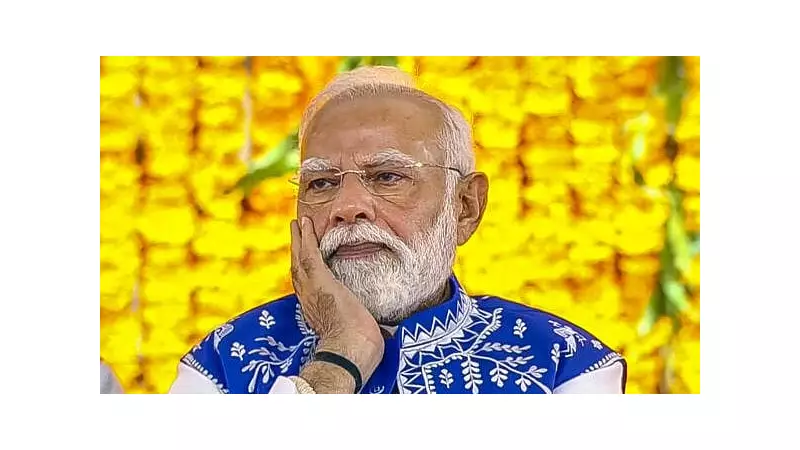
Prime Minister Narendra Modi delivered a powerful message during his visit to Gujarat, asserting that the tribal community's role in India's development and cultural fabric is not marginal but fundamentally central to the nation's identity. The Prime Minister made these significant remarks while addressing a public gathering in the tribal-dominated Dang district.
Historic Recognition of Tribal Contributions
During his speech on Sunday, Prime Minister Modi emphasized the invaluable contributions of tribal communities to India's freedom struggle and cultural heritage. The Prime Minister specifically highlighted how tribal communities have been the original conservationists and protectors of India's rich biodiversity and natural resources for centuries. He stressed that their traditional knowledge and sustainable practices offer crucial lessons for contemporary environmental challenges.
The event marked a significant moment in acknowledging the often-overlooked role of tribal populations in shaping India's civilizational identity. PM Modi noted that tribal communities have preserved ancient traditions and ecological wisdom that form an integral part of India's cultural mosaic.
Development Initiatives for Tribal Welfare
Prime Minister Modi outlined several key initiatives and achievements in tribal development under his government's leadership. He specifically mentioned the Pradhan Mantri Janjatiya Vikas Mission, which has been instrumental in transforming the lives of tribal communities across India. The mission focuses on improving infrastructure, healthcare, education, and economic opportunities in tribal-dominated regions.
The Prime Minister highlighted that the government has increased the allocation for tribal welfare significantly compared to previous administrations. He pointed to improved road connectivity, better educational facilities, and enhanced healthcare services in tribal areas as evidence of the government's commitment to inclusive development.
Cultural Preservation and Economic Empowerment
PM Modi emphasized the dual approach of preserving tribal culture while ensuring economic empowerment. The government has been working on documenting and promoting tribal art, craft, and traditional knowledge systems to prevent their erosion. Several schemes have been launched to help tribal artisans and craftspeople market their products more effectively, both domestically and internationally.
The Prime Minister specifically mentioned the development of Eklavya Model Residential Schools, which provide quality education to tribal children while preserving their cultural roots. These institutions have been crucial in bridging the educational gap while maintaining cultural continuity.
During his address, PM Modi also spoke about the various welfare schemes that have directly benefited tribal communities, including housing programs, clean drinking water initiatives, and electricity connectivity projects. He stressed that these developments are not just about infrastructure but about restoring the dignity and self-respect of tribal populations.
Vision for Tribal Communities in New India
The Prime Minister articulated a comprehensive vision for tribal communities in what he described as "New India." He emphasized that tribal communities should not be seen as beneficiaries of development but as active partners and contributors to nation-building. This paradigm shift in perspective forms the cornerstone of the government's approach to tribal welfare.
PM Modi called for greater recognition of tribal heroes in India's historical narrative, mentioning several tribal freedom fighters who played crucial roles in the independence movement but didn't receive adequate acknowledgment in mainstream history.
The Prime Minister's visit to Dang district and his strong statements about the central role of tribal communities in India's identity mark a significant moment in the political discourse surrounding tribal rights and recognition. His message resonated strongly with the local population, who welcomed this acknowledgment of their historical and contemporary significance to the nation.






